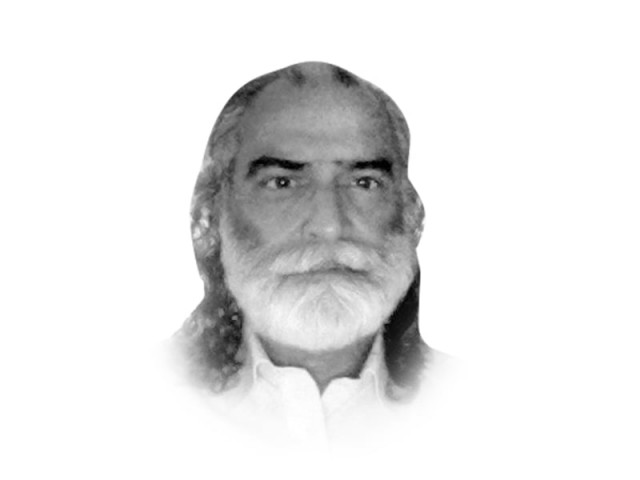Elections without freedom
Despite repeated elections in both Pakistan & India, corruption increased & governance became poorer over the years.

The writer is a social activist who heads the Pattan Development Organisation. The views expressed here are his own
One may argue that the rising number of cases is, in fact, a result of the enhanced role of watchdog bodies. Hence, more cases are coming to the surface. This may be marginally true but there is substantial evidence that despite the mushrooming of media channels and watchdog bodies, corrupt elements have managed to capture substantive seats through elections in the last 25 years in both countries, while in the first 40 years of independence, politicians were comparatively honest. During the early period, unlike India, we did not hold general elections regularly; however, fewer of our politicians were corrupt.
I leave it to the readers to think about why most of the first generation of politicians of both countries was honest. One thing that may be worth noting here, however, is that elections did not appear as a factor as far as the cleansing of our assemblies from the corrupt is concerned. In fact, I would argue that in both countries, elections paved the way for the corrupt to capture electoral space. Let’s quickly scan through political history. Though under the British Raj a massive amount of resources were extracted from India, generally there was strict adherence to the rule of law. The leadership of both the Muslim League and Congress were honest. They would hold annual conferences regularly. The leaders would debate party policies and strategies; and the delegates would approve or disapprove them through voting. Fighting for independence demanded sacrifices. Hence, greedy opportunists and the corrupt did not have reason to join the struggle. Moreover, most leaders of the Congress and the Muslim League were professional people; i.e., successful lawyers, intellectuals, writers, trade unionists, etc. They did not have any personal financial interest that they would need to promote through politics. After independence, gradually, thugs, feudals, businessmen and the real estate mafia replaced them. This created a serious conflict of interest. Unlike Jinnah, Gandhi and Nehru, the second generation of politicians chose to use political power to promote private interests. They did not want anyone who could challenge them inside and outside of political parties. Thus, they destroyed inner party debate, democracy and weakened social movements and trade unions. The media, too, became an industry. The teeth of the watchdogs were removed and advocacy/lobbying replaced social action. Moreover, research on social and political issues was marginalised and delinked from state and society. Consequently, debate and dialogue in our country has become mostly emotional, uninformed and extremely opinionated.
In order to substantiate my argument that elections make politicians corrupt, I would like to cite findings of a fascinating study conducted by two scholars, Asim Khwaja and Atif Mian (2004). In order to understand the relationship between politics and rent-seeking behaviour, they investigated the loan data of thousands of Pakistani firms. The study identifies a firm as “political” if any of its directors had participated in an election. Through a rigorous model, they found out that banks would favour political firms. One of their findings was “that not only do they receive 40 per cent larger loans but they also have 50 per cent higher default rates on the loans”. Moreover, they established that the percentage of votes polled and the margin of victory played a crucial role in this regard. This means that the stronger the politician, the higher the loan amount and default rate. The study shows a strong correlation between elections and corruption.
On February 24, the State Bank of Pakistan informed the Supreme Court that Rs256 billion were waived between 1971 and 2009. The report by Justice (retd) Ali’s commission says that loans worth Rs2.38 billon were waived between 1971 and 1991, whereas loans worth Rs84.62 billion were waived between 1992 and 2009. The list also reveals that the majority of these loans were given to ‘political’ firms. Hence, it is abundantly clear that despite repeated elections in both Pakistan and India, corruption increased and governance became poorer over the years. Moreover, corruption also widens inequalities and deepens deprivations. It is not, therefore, the elections per se, which improve governance and eliminate the corrupt. It is, in fact, the power of freedom that makes the difference. Though freedom is enshrined in our law, poor voters feel vulnerable. Should they use their freedom to vote freely, they loose their freedom after the election. The real issue is to have a free and fair election with the liberty to choose a candidate of one’s liking, without being coerced or bought.
Published in The Express Tribune, March 26th, 2013.















COMMENTS
Comments are moderated and generally will be posted if they are on-topic and not abusive.
For more information, please see our Comments FAQ